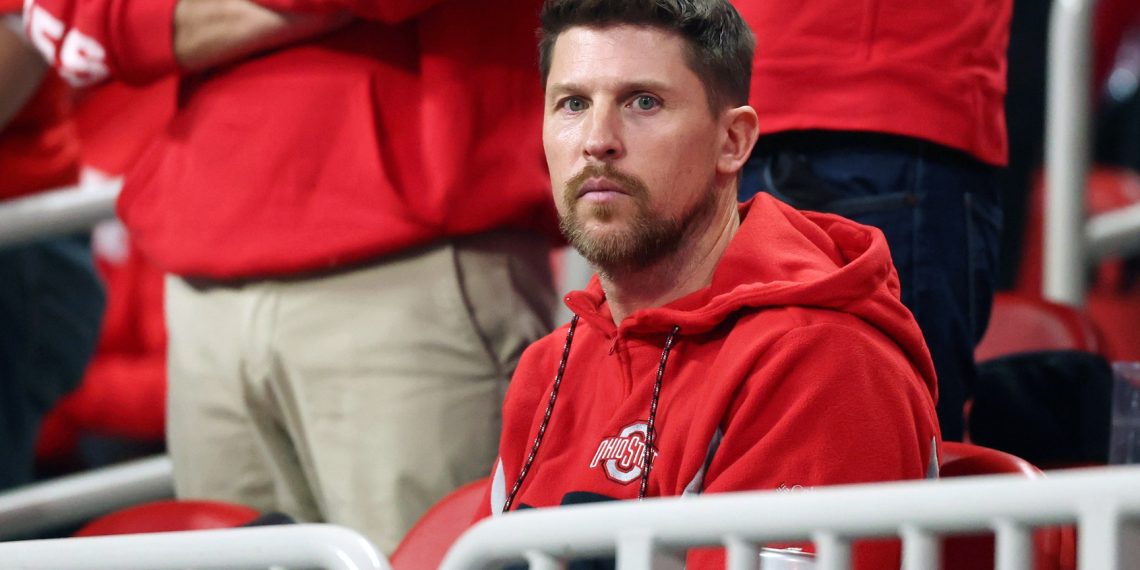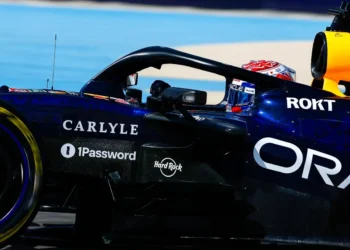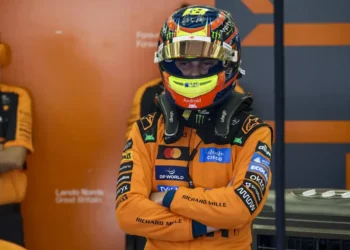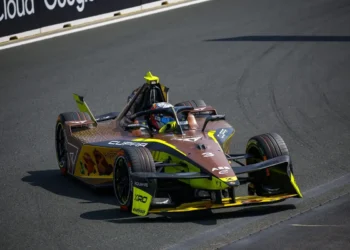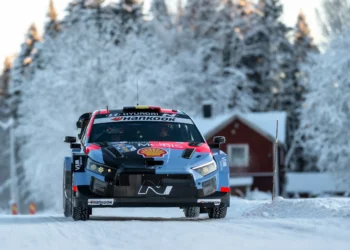The Daytona 500 is just a week away, but the biggest debate in NASCAR right now isn’t about pole speeds or drafting strategies—it’s about a controversial new rule that guarantees IndyCar legend Helio Castroneves a locked-in starting spot, even if he fails to qualify.
The Open Exemption Provisional (OEP) rule has ignited a firestorm of debate, with NASCAR star Denny Hamlin leading the charge, calling it nothing more than a “gimmick.”
“I just think it reeks of desperation… Be the big boys and force people to come in here and get their credentials and do it the natural way,” Hamlin said ahead of the 2025 Cook Out Clash.
Hamlin’s frustration is clear: Why should an outsider get a guaranteed spot in NASCAR’s biggest race without earning it on track?
But NASCAR veteran Kenny Wallace sees things a bit differently—and he’s not entirely disagreeing with Hamlin either.
Is NASCAR Desperate for Attention? Kenny Wallace Thinks So—And That’s Not a Bad Thing
Wallace agrees that NASCAR’s move is desperate, but he believes desperation isn’t necessarily a bad thing.
“Getting back to Denny saying it’s desperation, well, call it what you want,” Wallace said.
“Even if NASCAR said, ‘Look, we’re a little desperate right now’… It’s publicity. It’s marketing.”
Wallace argues that Castroneves brings something NASCAR needs—global attention.
With Brazil boasting a population of over 200 million, Castroneves’ presence could attract an entirely new audience to the sport, potentially expanding NASCAR’s international reach.
“Castroneves is a superstar, and NASCAR doesn’t have many of those right now,” Wallace continued.
Does NASCAR Lack Superstars?
Wallace made another blunt observation—NASCAR doesn’t have enough megastars carrying the sport forward.
“I’ve always said we don’t have any superstar NASCAR drivers,” Wallace stated.
“Now, if Chase Elliott can keep this up, I mean, that’s the only thing that’s gonna turn NASCAR around.”
His comments echo concerns from long-time fans that NASCAR has struggled to replace the larger-than-life personalities of the past.
When Dale Earnhardt Jr. retired, NASCAR lost millions of loyal fans. Could Chase Elliott, a seven-time Most Popular Driver, be the one to reignite NASCAR’s fan base?
Is the Daytona 500 the Right Place for This Rule?
While Wallace defends NASCAR’s marketing strategy, his co-host Charlie Marlow believes that the OEP rule should be used in smaller races—not the Daytona 500.
“If you have other races maybe where you don’t have as much attention and promotion… That’s where I feel like having a Max Verstappen or somebody like that can bring more attention,” Marlow said.
“But you don’t need extra attention for the Daytona 500.”
The Daytona 500 already draws one of the biggest crowds in American motorsports, often between 150,000-200,000 spectators, even in down years.
So why implement a publicity stunt for a race that’s already the most-watched event on the NASCAR calendar?
Is NASCAR Turning Its Biggest Race Into a Popularity Contest?
The Open Exemption Provisional rule isn’t just about Castroneves—it’s about who gets chosen and why.
Even Jeff Gordon has raised concerns, questioning whether this system turns qualifying for the Daytona 500 into a “popularity contest.”
“What happens to past champions like Jimmie Johnson?” Gordon asked.
If NASCAR starts hand-picking drivers based on star power, does that dilute the sport’s competitive integrity?
Or is it a necessary step to keep the sport fresh, relevant, and appealing to new fans?
The Bottom Line: Tradition vs. Growth—Where Does NASCAR Draw the Line?
This OEP debate isn’t black and white—it’s a clash between NASCAR’s old-school traditions and its push for modern growth.
Hamlin and Gordon represent the purists, wanting drivers to earn their spots the hard way.
Wallace and others see the bigger marketing picture—NASCAR needs global stars like Castroneves to bring in new fans and international exposure.
So the question remains:
Is NASCAR selling out its traditions, or is this just smart business?
Only time—and the reaction to Castroneves’ Daytona 500 debut—will tell.

